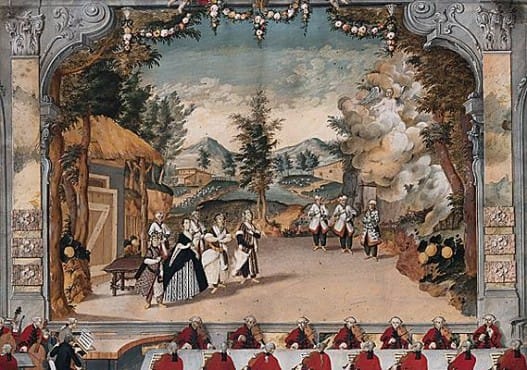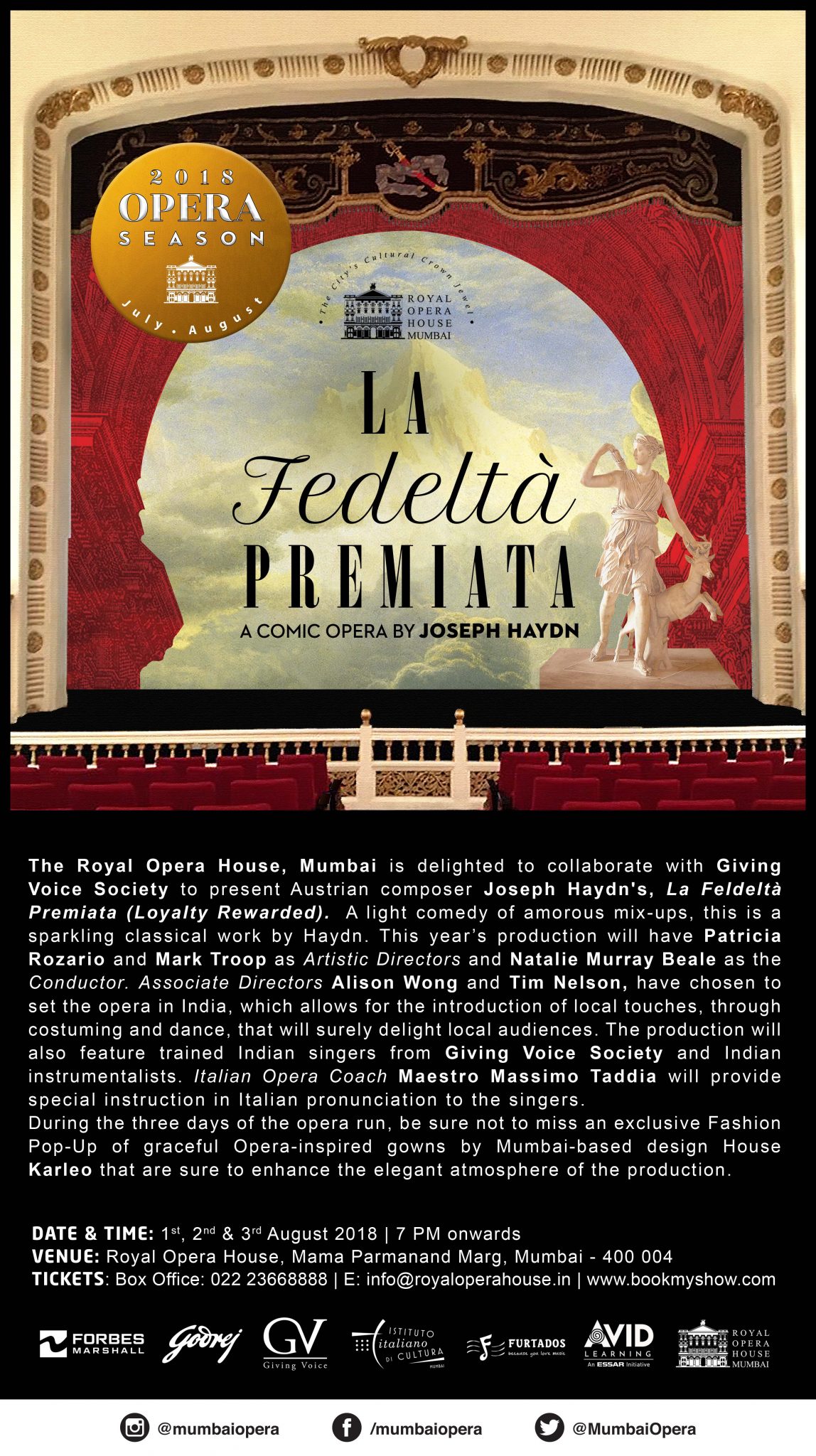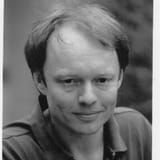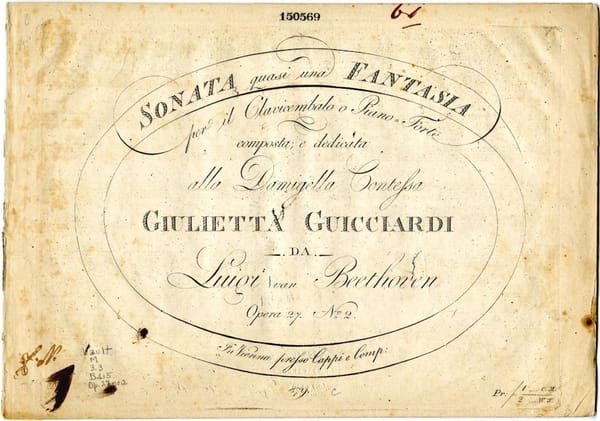Haydn’s La Fedeltà Premiata – at the Royal Opera House, Mumbai

Latest News from On High: From now on in your town Fidelity is banned. If you are found to be faithful on The Day of Sacrifice, you and your partner shall be devoured by the Lake Monster. By Order. It had better not be you! Get unfaithful, quick!
This is the slightly absurdist plot behind Haydn’s comedy of errors, The Gift of Fidelity – La Fedeltà Premiata, one of his last and best operas. Behind the racy storyline there is a work that enshrines all the virtues of classical music – great tunes, a suspenseful story and magnificent ensembles, written by an enduring master craftsman, the inimitable Austrian composer Joseph Haydn.
If you thought that opera might not be the go-to vehicle for quicksilver comedy and slapstick humour, you’d be in error. No longer is opera the domain of the outsize singing to the immobile, rather the place where a new breed of singer redefines an old tradition. Contemporary taste has changed, and with it are being rediscovered many old masterpieces ignored by the ‘stand and deliver’ school of production.
Not only that. The tedious bits of opera from which 17th Century toffs might deftly exit – to have a meal, play cards, or canoodle with a mistress in a private box – are now the parts that leave audiences entranced and amused. How is that possible? Because singers now can act! Those ‘tedious’ moments, the life-blood of the drama, have been restored to life.
Opera was an entertainment created by professionals for all. Starting as a diversion for the wealthy, it went public in Venice in 1737 and created a European furore that spread like wildfire for the next 200 years. A successful opera in Venice would sell out in Vienna, Paris and London.
Professional opera composers were the film men of their time. To write opera was the holy grail for a young tunesmith; whose success ensured permanent – and lucrative – employment. Hundreds of operas were churned out for a voracious public longing for glamourous entertainment, by clever words and music men largely forgotten by posterity. Anyone know Traetta, Jommelli or Spontini? How about Hasse, Paisiello or Méhul? And yet these were the composers that created the bedrock of the style from which Mozart, Rossini and Verdi emerged.
What, then, are we to make of Haydn, the creator of the classical style and an immeasurably greater musician that almost all his contemporaries? He wrote over 40 stage works and at least 16 operas yet forsook the universal gravy train that was public opera. Haydn worked in splendid isolation for a Viennese noble and would join his employer for endless months of each year, buried in opulent countryside away from civilisation. This suited the impecunious composer well, for he valued continuous employment more that the vagaries of fashion.
La Fedeltà Premiata, was composed in 1781, for this little kingdom away from the world, as a celebration after its court theatre was burnt down. Haydn, whilst living out of the limelight, would create a drama every bit as professional, every bit as engaging, as the best of his contemporaries. He used a libretto that had already been set by the famous Cimarosa (whose Secret Marriage was our 2017 opera at the ROHM). Haydn cut out the vulgarity (doubtless to spare royal blushes) and set to work. What emerged was a sparkling masterpiece that seamlessly draws together the two contemporary styles of opera – seria and buffo – the serious and the comic, giving audiences the iridescent beauty of the one and the slapstick humour of the other. How does one update an old masterpiece to speak to a contemporary Mumbai audience? Firstly, by setting our production in a timeless India, replete with Indian gestures and costumes. Secondly, with foot-tappingly accessible music, memorable characters and an engagingly modern production, audiences will be drawn into drawn into the story as easily as with a soap opera! Great works of the past brought back to life at Mumbai’s beautiful opera house – Papa Haydn would have been pleased!






